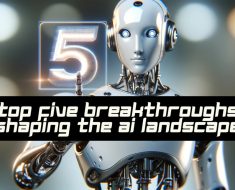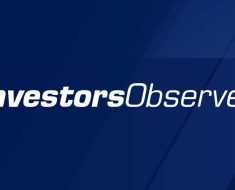Artificial intelligence has made significant strides in recent years, thanks to the development of large language models (LLMs) and techniques like reinforcement learning from human feedback (RLHF). However, optimizing the learning process of LLMs through human feedback remains a challenge.
Traditionally, training LLMs involved passive exploration, where models generated responses based on predefined prompts without actively seeking to improve based on feedback. This approach required many interactions and proved inefficient for rapid model improvement. Various exploration methods, such as Boltzmann Exploration and Infomax, have been used but often required a large number of human interactions to yield noticeable results.
Researchers from Google Deepmind and Stanford University have now proposed a novel approach to active exploration, incorporating double Thompson sampling (TS) and epistemic neural networks (ENN) for query generation. This active exploration method allows the model to actively seek informative feedback, significantly reducing the number of queries required to achieve high-performance levels.
In their experiments, agents generated responses to 32 prompts, which were evaluated by a preference simulator. The feedback from these evaluations was used to refine reward models at the end of each epoch. By selecting the most informative pairs from a pool of candidates using ENN, the model explored the response space more effectively.
The results showed that double Thompson sampling (TS) outperformed other exploration methods like Boltzmann exploration and infomax, especially when utilizing uncertainty estimates from the ENN reward model. This approach accelerated the learning process and demonstrated the potential for efficient exploration to reduce the volume of human feedback required.
This research opens up new possibilities for rapid and effective model enhancement by leveraging advanced exploration algorithms and uncertainty estimates. It highlights the importance of optimizing the learning process for the broader advancement of artificial intelligence. With these advancements, we can look forward to more efficient training methods for large language models and exciting AI applications in various fields.
FAQ Section:
Q: What is the main challenge in optimizing the learning process of large language models (LLMs) through human feedback?
A: The main challenge is finding a way to efficiently improve the LLMs based on feedback, as traditional methods have been inefficient and required a large number of human interactions.
Q: What is active exploration in the context of LLMs?
A: Active exploration is an approach where the LLM actively seeks informative feedback to improve its performance, instead of relying on passive exploration where it generates responses based on predefined prompts.
Q: What is double Thompson sampling (TS) and epistemic neural networks (ENN)?
A: Double Thompson sampling (TS) and epistemic neural networks (ENN) are techniques used in the proposed active exploration method. Double Thompson sampling is a method for balancing exploration and exploitation, while epistemic neural networks are used for query generation to effectively explore the response space.
Q: How did the researchers evaluate the performance of the LLMs?
A: The agents generated responses to 32 prompts, which were then evaluated by a preference simulator. The feedback from these evaluations was used to refine the reward models at the end of each epoch.
Q: What were the results of the experiments?
A: The experiments showed that double Thompson sampling (TS) outperformed other exploration methods like Boltzmann exploration and infomax. The use of uncertainty estimates from the ENN reward model accelerated the learning process and reduced the amount of human feedback required.
Definitions:
– Large language models (LLMs): Advanced models used to process and generate human language text.
– Reinforcement learning from human feedback (RLHF): A technique that uses human feedback to improve the performance of models through reinforcement learning.
– Boltzmann Exploration: A method that balances exploration and exploitation by assigning probabilities to actions.
– Infomax: A method that maximizes information content in an agent’s environment.
Suggested Related Links:
– DeepMind: DeepMind is an AI research organization that has made significant contributions to the field.
– Stanford University: Stanford University is a renowned academic institution known for its research and innovation in various fields.



